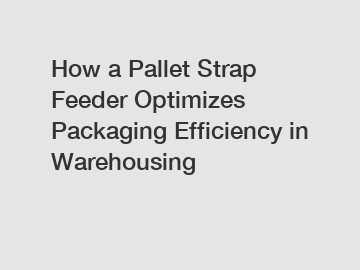Why Are Welding Tools Exporters Overlooked Today?
Why Are Welding Tools Exporters Overlooked Today?
In the rapidly evolving world of manufacturing and construction, welding tools exporters play a critical role in supplying essential equipment. However, they often find themselves overlooked in discussions about the global economy and industrial advancements. Here, we explore the reasons behind this oversight.
- 1. Lack of Awareness:
Many businesses fail to recognize the importance of welding tools exporters. Once focused primarily on local suppliers, they overlook the potential advantages of sourcing from international markets. This lack of awareness limits the growth and visibility of exporters within the industry.
- 2. The Rise of Digitalization:
With the rise of e-commerce and digital platforms, many companies now source tools online. While this presents opportunities for global exporters, it also means that many smaller exporters struggle to compete in this digital marketplace, leading to their products being offered less often.
- 3. Preferences for Established Brands:
Many buyers have a preference for well-known, established brands over lesser-known exporters. This mindset often results in a bias that overlooks high-quality products from smaller exporters that could offer competitive pricing and innovative solutions.
- 4. Complicated Trade Regulations:
Navigating complex trade regulations and tariffs can deter potential buyers from exploring options outside their country. These barriers can discourage companies from engaging with welding tools exporters, limiting their market reach.
- 5. Perceived Quality Concerns:
There are often perceptions that products from exporters might not meet international quality standards. Even informed buyers can sometimes be hesitant to import welding tools due to concerns about reliability and durability, inadvertently sidelining capable exporters.
- 6. Limited Marketing Efforts:
Many welding tools exporters still rely on traditional marketing methods rather than modern digital strategies. This limited reach means that their offerings are not as visible to potential buyers, fostering the misconception that they are less competent or innovative.
Additional resources:
Key Questions to Ask When Evaluating CNC Machine Suppliers - 7. Economic Fluctuations:
What factors influence feed pellet cooler purchasing decisions?
Why Choose a 19 Inch Subrack OEM for Your Needs?
How Does an Animal Feed Conveyor Work?
What is the XPS Foam Board Production Process?
Hot Tack Testing for R&D: A Comprehensive Guide
How Will 3U Subracks Shape Future Manufacturing?Economic instabilities in various regions can impact the ability of businesses to import goods from exporters. When the economy experiences downturns, companies often cut back on spending, which can lead to overlooked opportunities in international markets.
- 8. Competition from Local Competitors:
Local competitors with established relationships and familiarity with domestic markets often dominate, stifling the chances for welding tools exporters. These businesses may offer the same or similar tools, leading to the perception that local options are always preferable.
- 9. Lack of Network and Representation:
Exporters frequently lack proper networking and representation at industry events. Without a strong presence at these key gatherings, they miss opportunities to connect with potential buyers and showcase their products directly.
- 10. Evolving Industry Needs:
The welding industry itself is changing rapidly, and the demands on tools are evolving. Exporters may struggle to keep pace with technological advancements, causing them to be overlooked in favor of those who can innovate faster.
In conclusion, while welding tools exporters hold significant potential, they face numerous challenges that contribute to their current status in the marketplace. Recognizing these hurdles is crucial for both exporters seeking to elevate their standing and buyers looking for quality products.
If you are looking for more details, kindly visit China Welding Machine Aluminum, China Best Flux Core Welding Wire.
Additional resources:Maximize Efficiency with Animal Feed Cleaning Machine
Essential Machinery for Efficient Gypsum Board Production
3U 19" Subracks ODM: Comparing Features for Optimal Selection
What are the benefits of using feed pellet crumblers?
What are the benefits of used stainless steel tanks?
How Rock Breakers Solve Tough Demolition Challenges
Plasterboard Plant Machinery: Manual vs. Automated Solutions Compared









